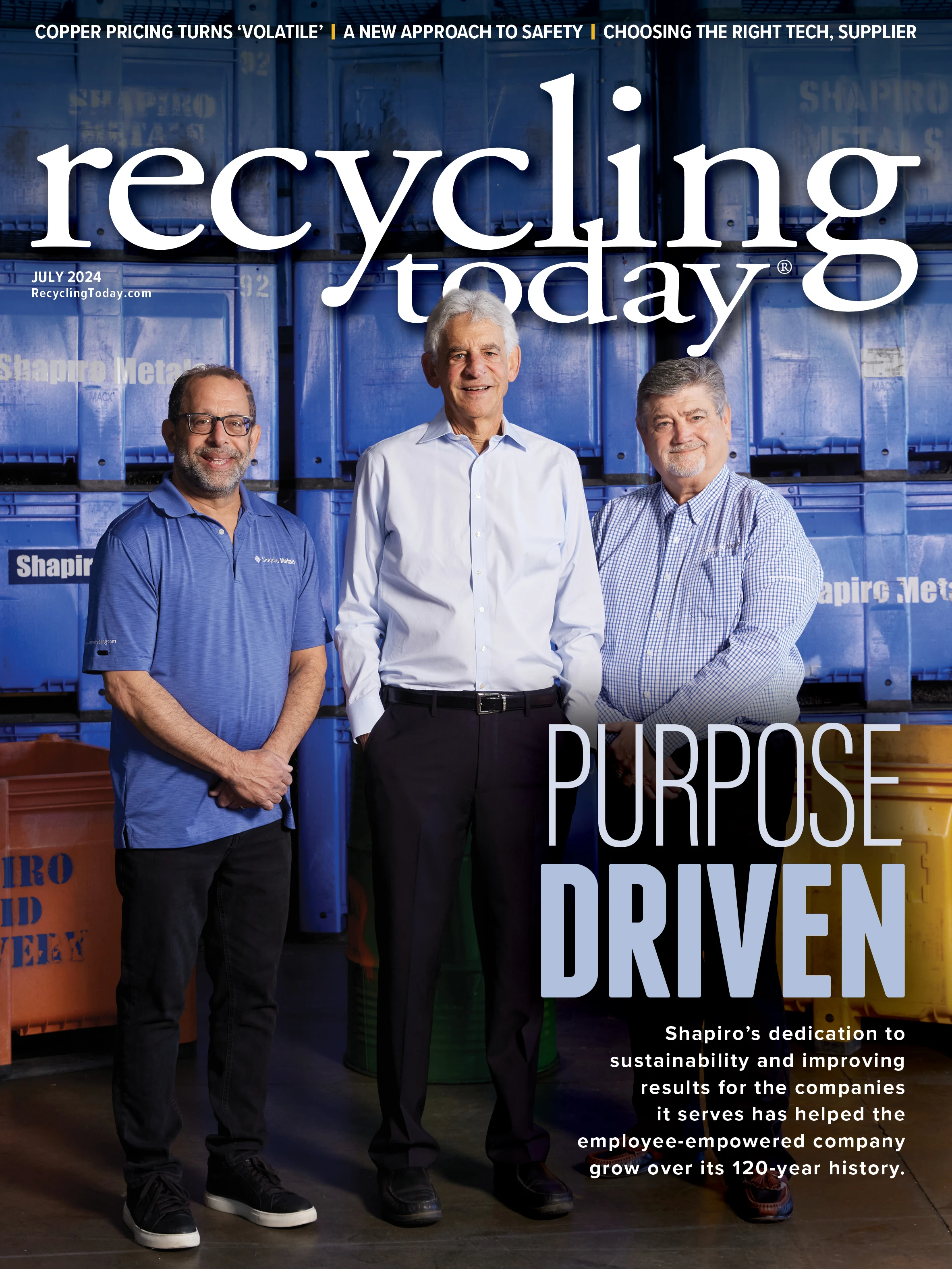A recent report revealed a major gap between global companies’ stated plastic reduction commitments and their actions.
The 2024 Plastics Promises Scorecard, released by California-based nonprofit As You Sow and environmental solutions platform Ubuntoo, ranked 225 companies across 15 industries based on their ambition and actions to reduce plastic packaging pollution, judging them on six categories including recyclability goals, virgin plastic reduction and use of recycled content. The results could be viewed as troubling for recyclers facing markets full of cheap virgin material.
For example, the report found only 22 of 147 companies with stated recyclability goals are on track to meet them. The research also reveals that 145 companies have goals to use more recycled content in their packaging, but not enough recycled content is available to meet demand due to “a lack of corporate investments in packaging collection and recycling.”
“A lot of people that buy recycled material only for cost savings have flipped back to virgin now because they’re able to buy it cheaper.” – A recycler based in the Southeast
A recycler based in the Southeast who works with polypropylene (PP) and high-density polyethylene (HDPE) says the market is relatively weaker at this year’s midway point than it was in June 2023. In line with the As You Sow report, companies’ continued use of low-cost virgin material has hurt recycled content markets.
“I think it’s just a correction year, and once people feel like the virgin resin’s found the [pricing] bottom and you’re not going to see big depreciations in the value, you’ll probably see some of the marketplace kind of come back,” he says. “A lot of people that buy recycled material only for cost savings have flipped back to virgin now because they’re able to buy it cheaper.”
As of mid-June, the recycler notes that the market for his resins is a bit slow because of virgin pricing, and a squeeze on mixed-color HDPE bales led to decreased demand. However, PP has achieved a balance despite a recent drop in virgin pricing that led buyers to take a more cautious approach.

Lee Cornell, commodity sales manager at Omaha, Nebraska-based FirstStar Recycling, says markets this year have been steady but lack the “rabid purchasing” seen over the previous two years. Instead, he says the trend has been for modest increases in bale pricing. As of mid-June, bales of polyethylene terephthalate (PET) were selling for about 17 cents per pound; natural HDPE was 38 cents per pound; mixed-color HDPE was 22 cents per pound; and PP was 10 cents per pound.
He says domestic demand is “good, but not desperate” and most tons have moved easily from his facility. However, PET generation has seemed to slow in the Midwest.
“It’s been a wet spring so far, and that may curtail some consumption,” Cornell says.

Explore the July 2024 Issue
Check out more from this issue and find your next story to read.
Latest from Recycling Today
- ReMA urges open intra-North American scrap trade
- Axium awarded by regional organization
- China to introduce steel export quotas
- Thyssenkrupp idles capacity in Europe
- Phoenix Technologies closes Ohio rPET facility
- EPA selects 2 governments in Pennsylvania to receive recycling, waste grants
- NWRA Florida Chapter announces 2025 Legislative Champion Awards
- Goldman Sachs Research: Copper prices to decline in 2026





